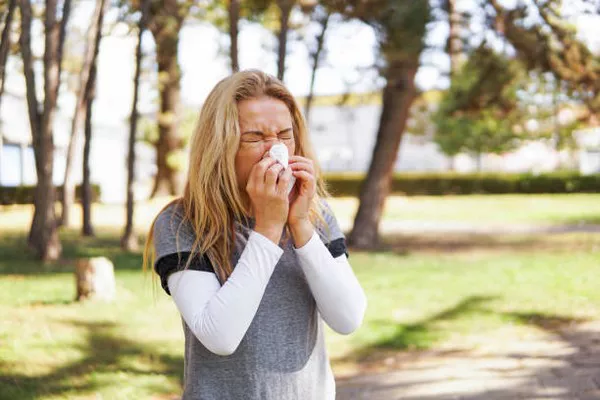After an unseasonably warm winter and numerous spring storms, allergy season has arrived in full force in Michigan. Early blooming of trees and plants has led to an increased release of pollen, mold spores, and other airborne irritants, triggering seasonal allergies characterized by sneezing, coughing, itchy eyes, and other symptoms.
The risk for allergy symptoms in Michigan ranges from moderate to high, primarily due to tree pollen, followed by grass pollen. Most of the northern Lower Peninsula and Upper Peninsula are experiencing medium to high pollen counts, while the southern part of the state sees medium to low-medium levels.
Seasonal Allergens and Symptoms
Tree pollen is the predominant allergen in spring, with grass pollen becoming more common in summer and ragweed pollen prevalent in fall, as per the Asthma and Allergy Foundation of America. Allergies can manifest as coughing, sneezing, rashes, itchy eyes, hives, runny nose, or a scratchy throat. Severe reactions may lead to breathing difficulties or asthma attacks.
Pharmacy manager Irfan Salam from CVS Health recommends antihistamines and corticosteroids to adjust the body’s response to allergens. These medications should ideally be started before the allergy season and continued throughout its duration to prevent severe reactions.
Increasing Allergy Severity
Dr. Michael A. Carron, an associate professor of otolaryngology at Wayne State University, notes that 20% to 30% of his patients suffer from seasonal allergies. He explains that mast cells in the body release histamine when triggered by allergens like pollen, causing allergic responses.
Warmer temperatures and increased rainfall exacerbate allergy symptoms by prompting trees, grasses, and weeds to produce more pollen. “It’s been very wet, and when it’s that wet, the trees start to release more pollen when they bloom,” Carron said. Increased moisture also raises mold, spore, and fungi levels, intensifying allergic reactions.
Managing Allergy Symptoms
The most common treatments for allergy symptoms are antihistamines, available both over-the-counter and by prescription. Medications like Zyrtec or Claritin can help alleviate symptoms. For severe cases, Dr. Carron suggests formal allergy testing and immunotherapy, which aims to condition the body to tolerate allergens.
Preventive measures include avoiding outdoor activities when pollen counts are high, typically early in the morning, and keeping doors and windows closed to prevent pollen from entering homes.
Conclusion
With the combination of warm winters and wet springs, Michigan’s allergy season is proving challenging for many residents. Understanding the triggers and effective management strategies can help alleviate the discomfort and improve the quality of life for those affected by seasonal allergies.


